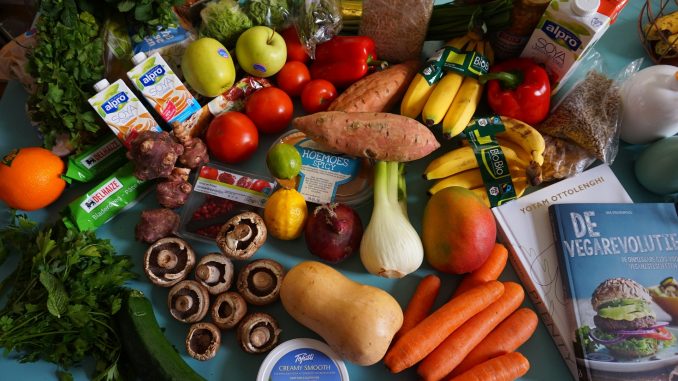
It’s estimated that 6% of US consumers now say they’re vegan. This is six times higher than in 2014 when only 1% said they followed a plant-based diet.
If you’re considering following a vegan diet in the coming years, here are the pros and cons.
The pros:
1. It promotes weight loss
One of the most noticeable immediate benefits of a vegan diet is that it promotes weight loss, and this is something that attracts a lot of people to veganism.
A plant-based diet is lower in calories than a vegetarian diet and much lower than it is for meat-eaters because it removes high-fat meat and dairy products.
2. There’s a lower risk of serious illness
Many nutritionists believe that a vegan diet can reduce the risk of major illnesses, like hypertension, cardiovascular disease, and type-2 diabetes.
Plant-based diets are naturally low in saturated fats, which means that vegans are also less prone to high blood pressure, cholesterol, and obesity.
In fact, one study published by the National Academy of Sciences found that up to 8.1 million deaths could be avoided each year if more people followed a vegan diet.
3. It’s environmentally sustainable
Producing meat takes a huge toll on the environment. It’s estimated that it takes approximately 100 times more water to produce animal protein, rather than grain protein.
Sustainability is something that’s become important to people in recent years, and this is a problem that will only get worse. Many people choose veganism as it’s more sustainable.
The cons:
1. Some people increase their sugar consumption
Although there are clear health benefits of veganism, some people find that this backfires as they end up eating more sugar, as well as processed and fatty foods.
Because a vegan diet is so restrictive, it’s easy to fall into this trap, which can end up negatively affecting your overall health and weight.
2. Vegan diets lack some vital nutrients
One of the biggest downsides of a vegan diet is that there are some nutrients that can only be found in meat, fish, dairy, or other animal products.
One example of this is vitamin B12, which is very hard to get from non-animal products. Some of the symptoms of deficiency include weakness, fatigue, and loss of appetite.
Some other nutrients that people can miss out on include calcium, folate, and omega-3 fatty acids. Most experts recommend people take supplements if they aren’t getting key nutrients.
Should people follow a vegan diet?
When deciding which diet to follow, it’s important that consumers weigh up the pros and cons of each option and make an informed choice. There’s no “one-size-fits-all” and the ideal diet for each person will depend on their age, fitness, overall health, and preferences.
A vegan diet can be beneficial for weight loss and preventing diseases. But, it’s also important to replace any lost nutrients and follow a healthy diet.


Leave a Reply